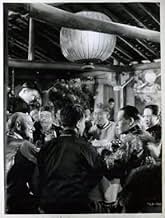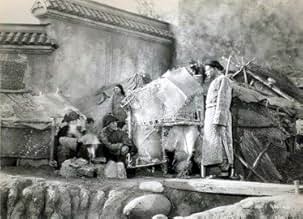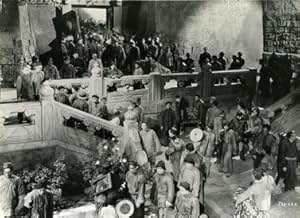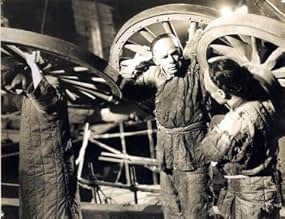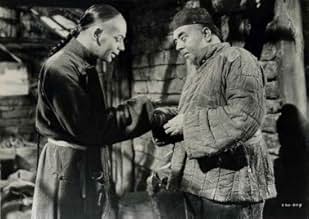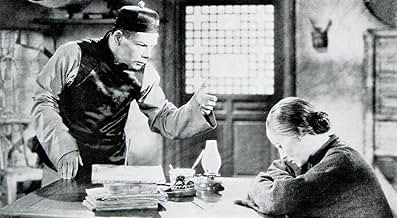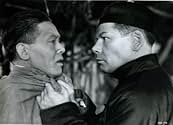Bien que les fermiers chinois mariés Wang et O-Lan connaissent d'abord le succès, leurs vies sont compliquées par des fortunes déclinantes et des périodes de vaches maigres, ainsi que par l'... Tout lireBien que les fermiers chinois mariés Wang et O-Lan connaissent d'abord le succès, leurs vies sont compliquées par des fortunes déclinantes et des périodes de vaches maigres, ainsi que par l'arrivée de la belle jeune Lotus.Bien que les fermiers chinois mariés Wang et O-Lan connaissent d'abord le succès, leurs vies sont compliquées par des fortunes déclinantes et des périodes de vaches maigres, ainsi que par l'arrivée de la belle jeune Lotus.
- Récompensé par 2 Oscars
- 4 victoires et 3 nominations au total
- Revolutionary Army Captain
- (non crédité)
- Man
- (non crédité)
- Teahouse Dancer
- (non crédité)
- Chinese Girl
- (non crédité)
Histoire
Le saviez-vous
- AnecdotesSpecial effects experts were unable to produce an authentic-looking locust plague. Just as they were about to abandon the scene, they received word that a real locust plague was taking place several states away. A camera crew was rushed to the scene to capture it on film.
- Gaffes(at around 2h 5 mins) Wang Lung is walking through the locust storm in his wheat field. He picks up a few men who have fallen down into the thick pile of locusts. In frustration, Wang shouts "I said save the wheat! Save it!" At this moment, a man dressed in 1937-era American clothing walks across the scene from left to right, at the top third of the screen. He is wearing a white hat and appears to be smoking a cigarette or cigar held in his left hand.
- Citations
Wang Lung: [must sell his land to feed his family but the buyers take advantage of him] Thieves! Thieves! And well you know I must sell.
O-Lan: No! Not the land. We'll not sell the land. We'll keep it. We'll go south and when we return, we'll still have the land.
Uncle: But I've arranged it. I brought these men here. You MUST sell!
O-Lan: Is it your land? Did you buy it bit by bit? The land is our life... and it's better to go south... or die walking... than to give it to you for nothing.
- Crédits fousIntroduction played with opening credits: The soul of great nation is expressed in the life of its humblest people. In this simple story of a Chinese farmer may be found something of a the soul of China - its humility, its courage, its deep heritage from the past and its vast promise for the future.
- ConnexionsEdited into Les Fils du dragon (1944)
This is a truly great epic story of love, individual rights, class strata, and men/women issues. The centerpiece of the film is two brilliant performances by Luise Rainer and Paul Muni.
Muni plays Wang, a Chinese farmer, who is about to take a wife (Rainer). From the start, he treats her with respect, during a time when women were looked on as little more than hired help. Without giving too much of the movie away, they go through the highs and lows of all relationships, and even though the story may take place in late 19th/early 20th century,the story and much of their feelings, seems credible.
Other than the fact that the movie is about 5-10 minutes longer than it needs to be, and the performances of Charley Grapewin and Walter Connolly are typical 1930's cartoon characters, this is a really wonderful movie that, unfortunately, has become a victim of political correctness.
9 out of 10
- alfiefamily
- 4 mai 2004
- Permalien
Meilleurs choix
Détails
- Date de sortie
- Pays d’origine
- Site officiel
- Langue
- Aussi connu sous le nom de
- Visages d'Orient
- Lieux de tournage
- Cedar City, Utah, États-Unis(backgrounds for locust sequence)
- Société de production
- Voir plus de crédits d'entreprise sur IMDbPro
Box-office
- Budget
- 2 800 000 $US (estimé)
- Durée2 heures 18 minutes
- Rapport de forme
- 1.37 : 1
Contribuer à cette page




